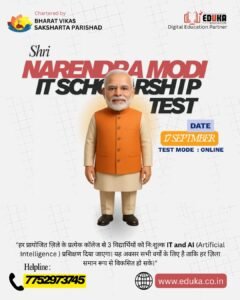A program in Mobile Game Design & Integration focuses on the principles and practices needed to design, develop, and integrate mobile games. This program typically includes a blend of game design theory, practical programming skills, and platform-specific knowledge for mobile devices. Below is a detailed outline of such a program, which can be structured to be completed within 6 to 12 months.
Course Duration
- Total Duration: 6 to 12 months
- Modules: Each module can range from 4 to 8 weeks
- Total Hours: Approximately 400-600 hours

Course Outline
1. Introduction to Mobile Game Design
- Duration: 2 weeks
- Topics Covered:
- Overview of mobile game industry
- Differences between mobile and traditional game design
- Key concepts and terminology
2. Fundamentals of Game Design
- Duration: 6 weeks
- Topics Covered:
- Principles of game design
- Game mechanics, dynamics, and aesthetics
- Storytelling and narrative development
- Level design and user experience
- Software/Tools:
- Unity
- Unreal Engine
3. Introduction to Programming for Mobile Games
- Duration: 6 weeks
- Topics Covered:
- Basics of programming (C#, JavaScript)
- Object-oriented programming
- Scripting for mobile games
- Introduction to mobile-specific APIs
- Software/Tools:
- Visual Studio
- Unity
4. Mobile Game Engines and Development
- Duration: 8 weeks
- Topics Covered:
- Introduction to game engines for mobile (Unity, Unreal Engine)
- Mobile-specific features and optimizations
- Building and deploying simple mobile games
- Software/Tools:
- Unity
- Unreal Engine
5. User Interface (UI) and User Experience (UX) Design
- Duration: 6 weeks
- Topics Covered:
- Principles of UI/UX design for mobile games
- Creating intuitive and engaging interfaces
- Usability testing and user feedback
- Software/Tools:
- Adobe XD
- Sketch
- Figma
6. 2D and 3D Asset Creation
- Duration: 8 weeks
- Topics Covered:
- Basics of 2D and 3D art creation
- Character and environment design
- Animation for mobile games
- Software/Tools:
- Adobe Photoshop
- Blender
- Autodesk Maya
7. Monetization and In-App Purchases
- Duration: 4 weeks
- Topics Covered:
- Mobile game monetization strategies
- Implementing in-app purchases
- Ad integration
- Balancing monetization with gameplay
- Software/Tools:
- Unity IAP
- Google AdMob
8. Mobile Game Optimization and Performance
- Duration: 6 weeks
- Topics Covered:
- Optimizing games for mobile devices
- Reducing battery usage and heat generation
- Managing different screen sizes and resolutions
- Debugging and performance profiling
- Software/Tools:
- Unity Profiler
- Android Studio
- Xcode
9. Advanced Mobile Game Development
- Duration: 8 weeks
- Topics Covered:
- Advanced game mechanics and interactions
- Multiplayer and social features
- Using sensors and device features (e.g., GPS, accelerometer)
- AR/VR integration for mobile games
- Software/Tools:
- Photon Unity Networking (PUN)
- ARKit/ARCore
- Vuforia
10. Project Management and Collaboration
- Duration: 4 weeks
- Topics Covered:
- Project planning and management
- Agile and Scrum methodologies
- Team collaboration tools
- Version control with Git
- Software/Tools:
- Jira
- Trello
- GitHub
11. Final Project
- Duration: 8 weeks
- Topics Covered:
- Conceptualizing and planning a mobile game project
- Developing the project from start to finish
- Playtesting and debugging
- Presenting the final project
- Software/Tools:
- All previously used tools and software
Additional Tools and Software
- IDEs: Visual Studio, Rider
- Graphics Software: Adobe Photoshop, Illustrator
- Game Engines: Unity, Unreal Engine
- Audio Tools: Audacity, FMOD, Wwise
- Collaboration: Slack, Microsoft Teams
Conclusion
This program in Mobile Game Design & Integration is designed to provide students with a thorough understanding of both game design principles and the technical skills required to develop and integrate mobile games. The course covers a wide range of topics, from fundamental principles to advanced techniques, preparing students for careers in the mobile gaming industry. Students will gain hands-on experience with industry-standard tools and software, enabling them to create engaging and optimized mobile games.









